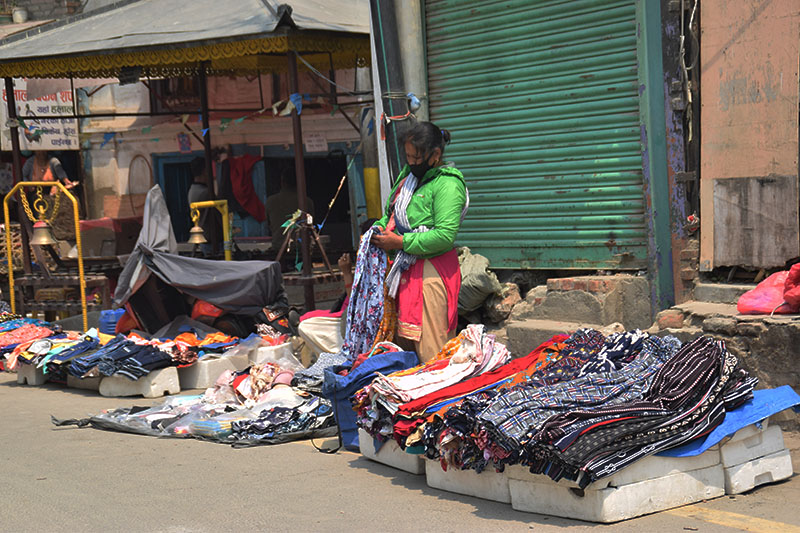

As the number of people being infected with the coronavirus started rising steadily, the government decided to impose a 15-day prohibitory order in Kathmandu valley from today to break the chain of infection.
There have been various restrictions placed with only a few businesses and offices being allowed to open. Movement of private and public vehicles has also been curtailed except for those delivering essential goods or services.
Usually, during such restrictions what most people fail to notice is the manner in which it affects the street vendors and daily wage earners. There are thousands of people in Kathmandu valley who depend on their daily earnings to survive. And this is one major reason we witnessed an exodus of people to their villages.
On average a street vendor in Kathmandu earns around Rs 22,000 in a month through which they are able to manage their daily needs and send their children to school. However, with such prohibitory orders their earnings tumble. The capital is a major hub for street vendors selling various types of goods from vegetables to electronic items and clothes. Since they sell products which are comparatively a lot cheaper we can see a lot of consumers thronging their stalls.
Though street vendors fall under the category of the informal economy their contribution to the country’s economy cannot be ignored. In fact, as per the International Labour Organistaion, more than 70 per cent of the economically active population in Nepal is involved in the informal economy. However, despite their contribution there are no proper laws and regulations in Nepal that guarantee their social protection.